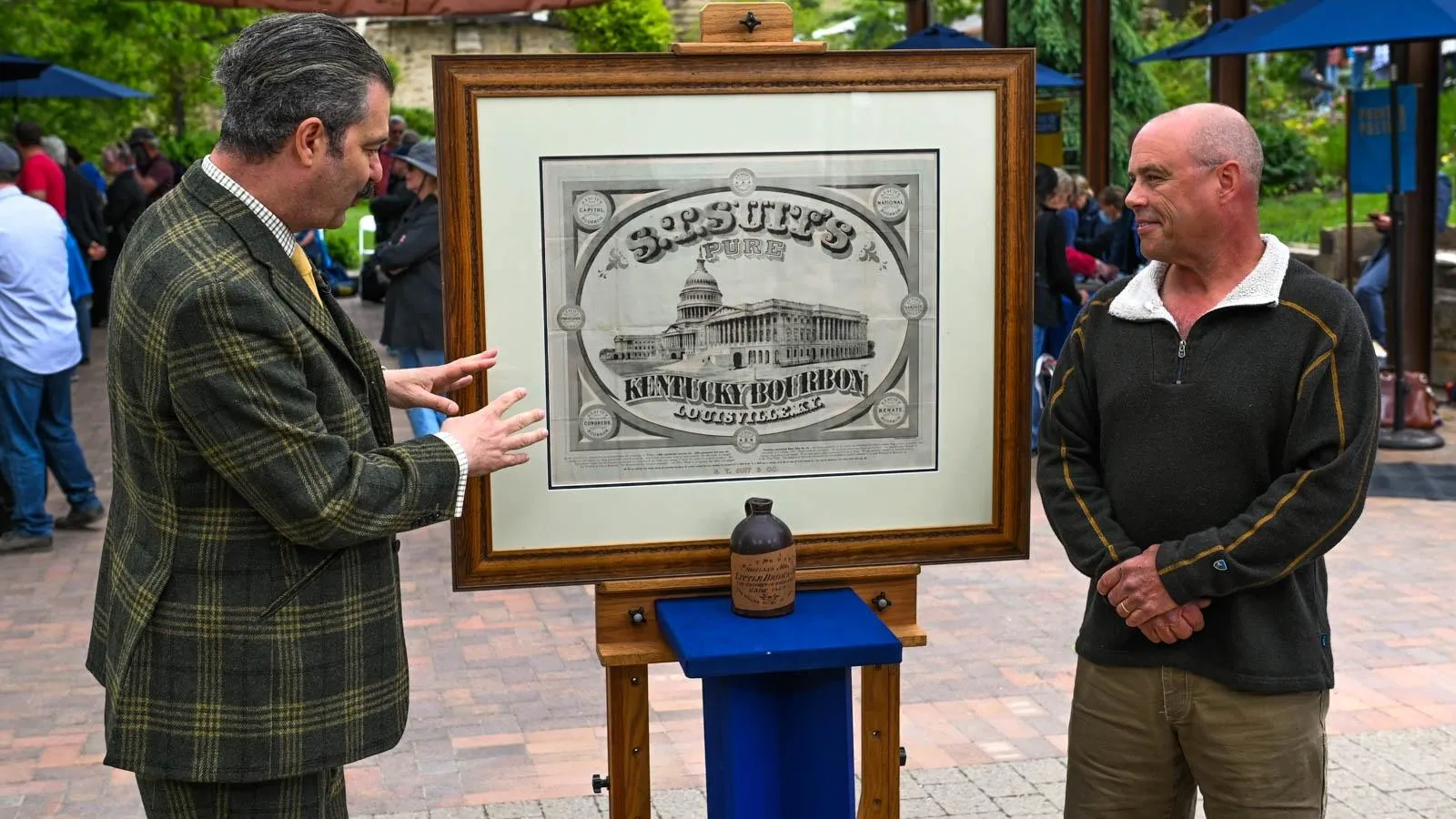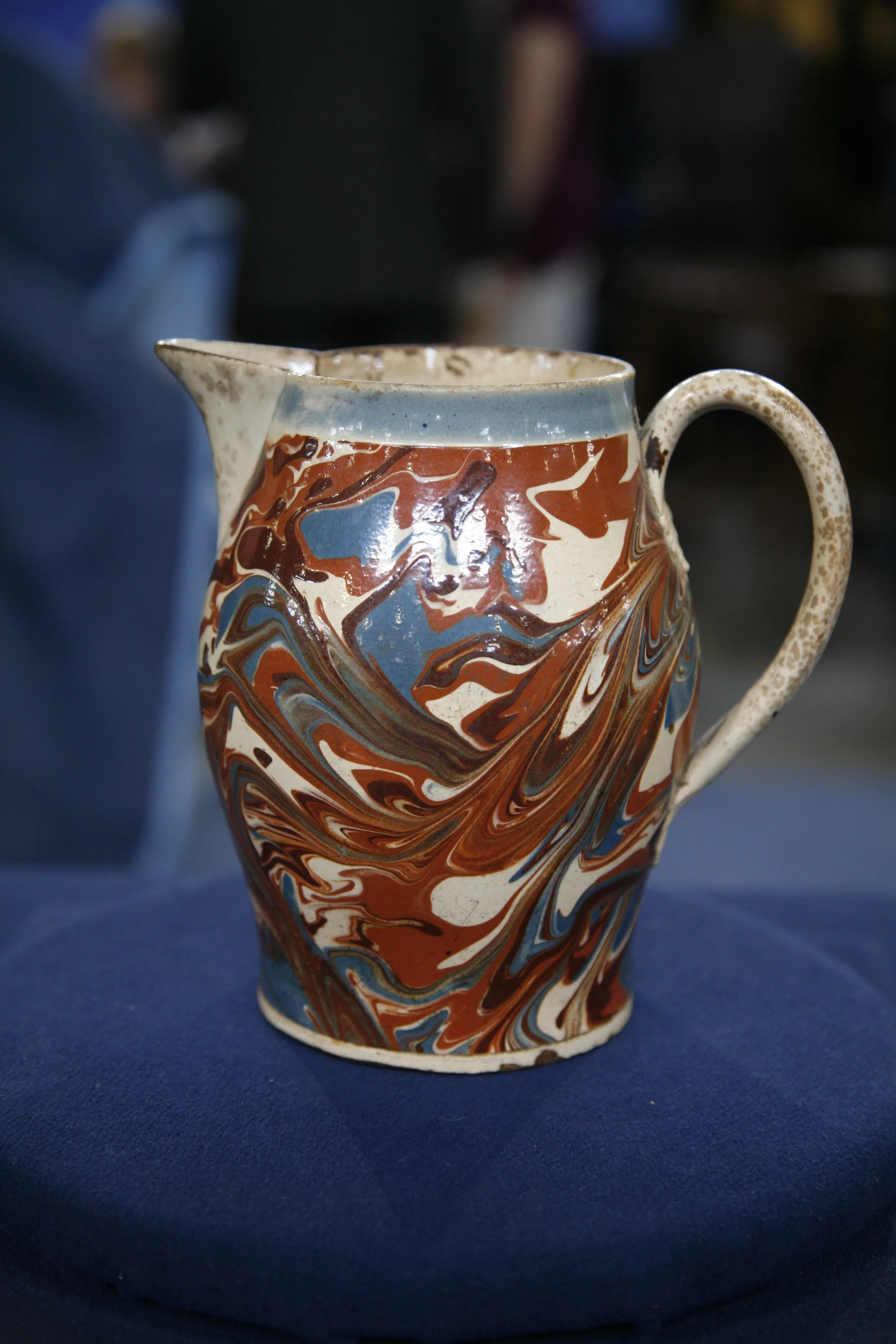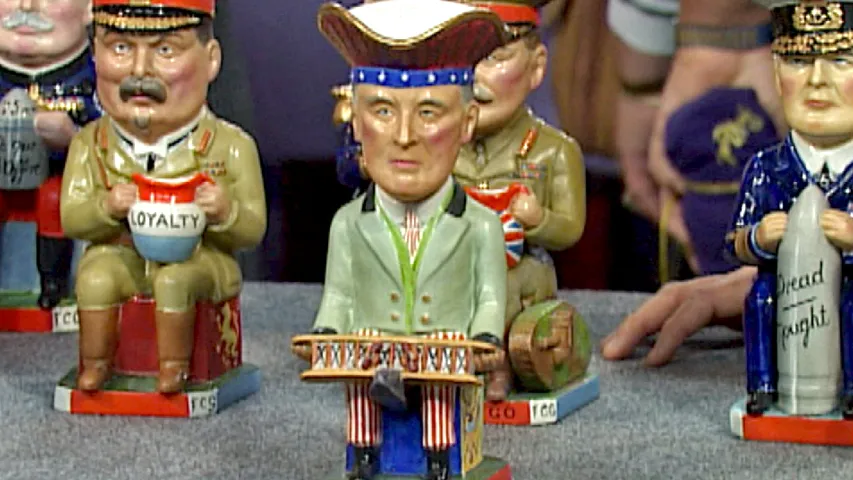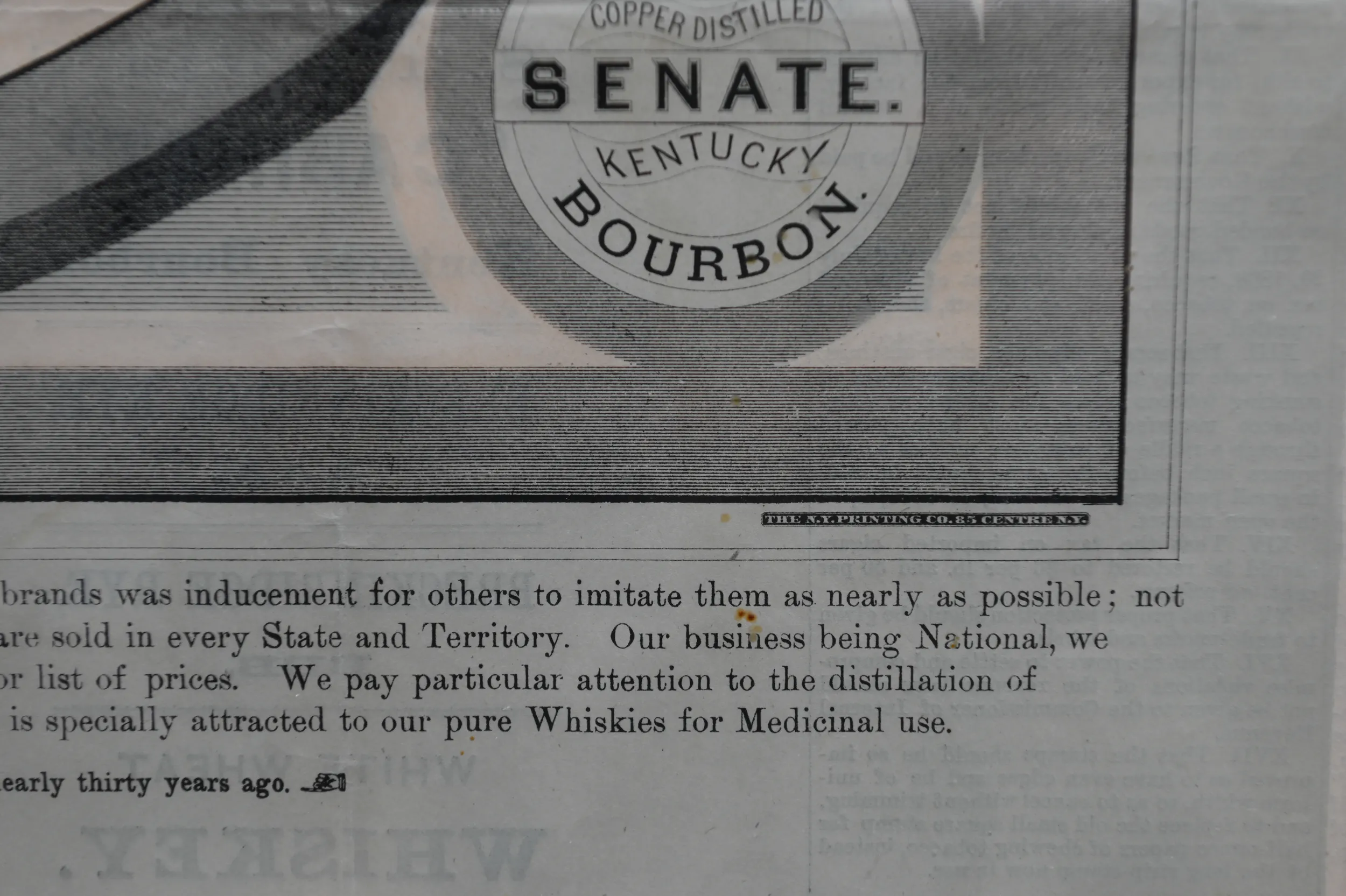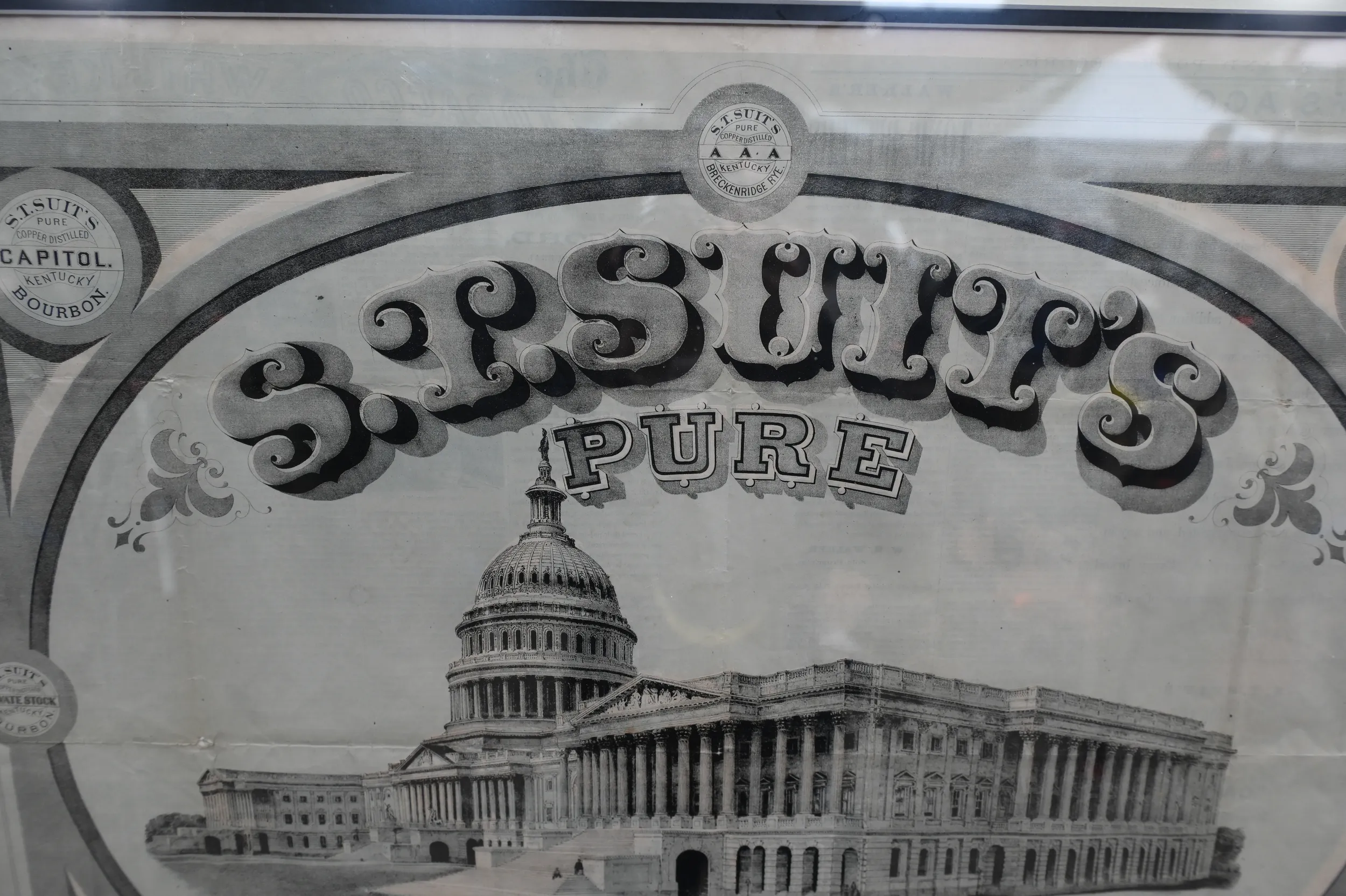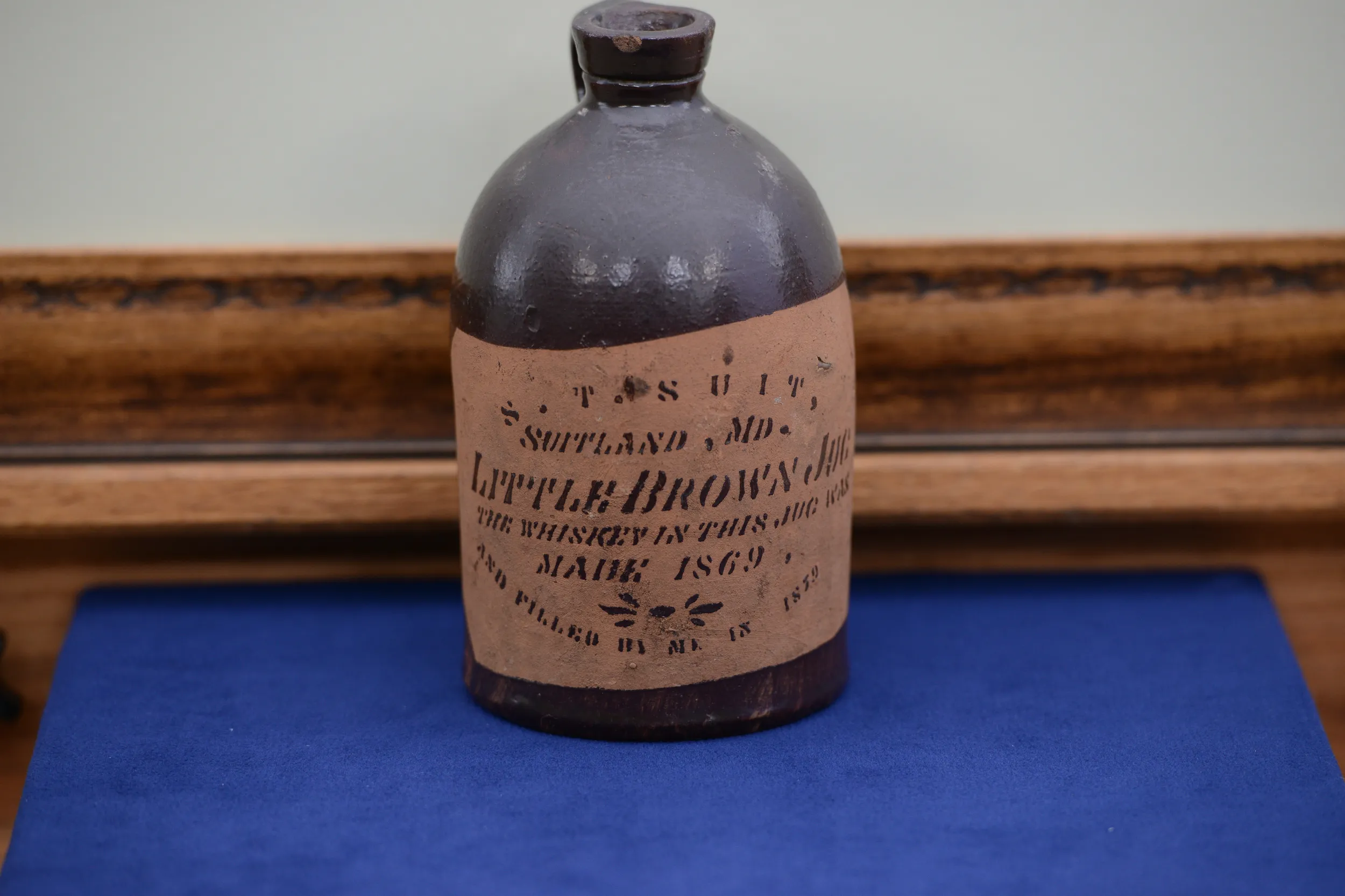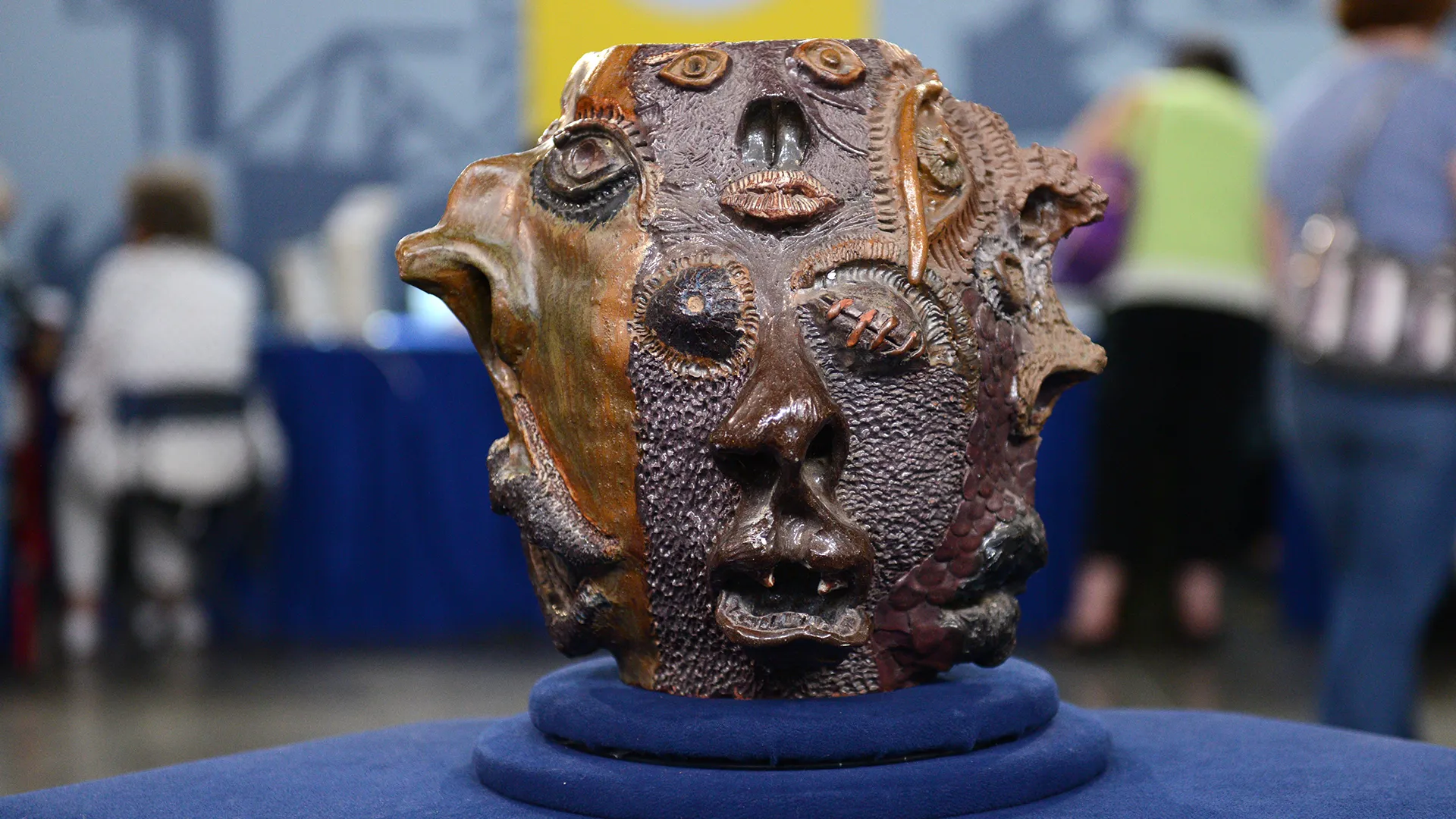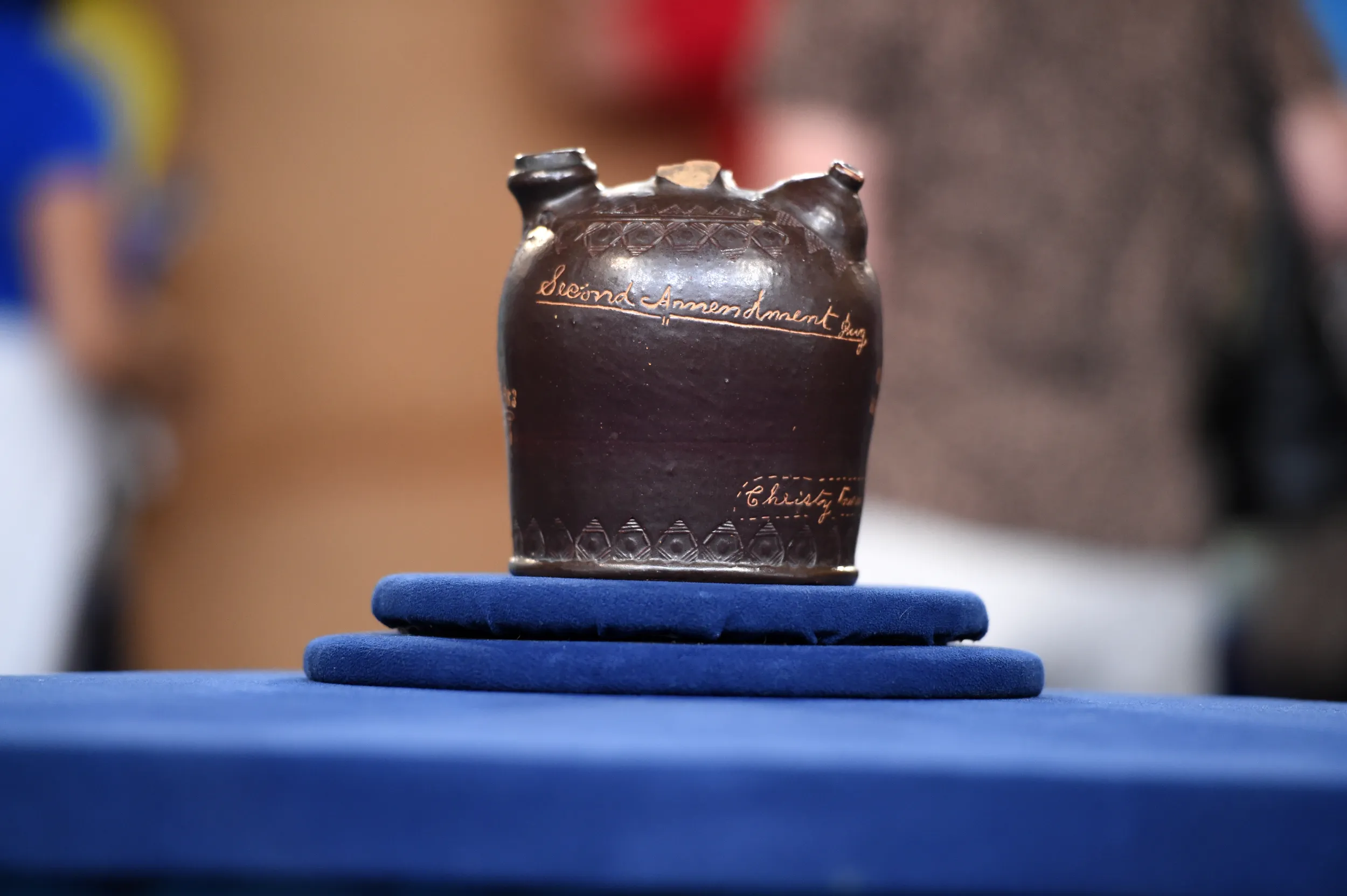GUEST: I was gifted this lithograph and the bottle of whiskey that goes along with it, it's from a very dear friend, as a retirement gift. It's something I've admired on his wall every time I go to his little cabin.
APPRAISER: When were you given these?
GUEST: Actually, very recently-- last week.
APPRAISER: When did you retire?
GUEST: Today is my last day officially at work, and I'm here at the ROADSHOW.
APPRAISER: (laughs)
GUEST: It just worked out that way.
APPRAISER: This is the best last day at work ever.
GUEST: This is the best last day, yeah.
APPRAISER: Happy retirement.
GUEST: Thank you.
APPRAISER: You brought in your retirement gift. It's not a lithograph.
GUEST: Oh!
APPRAISER: Uh, it's actually an engraving. Technically, it's not a poster, right? Technically, this is the inside of a newspaper.
GUEST: Right.
APPRAISER: And very technically, it's not any newspaper. It is specifically the "Tobacco Whiskey...
GUEST: "Whiskey"...
APPRAISER: ...Pork Record."
GUEST: Right.
APPRAISER: From 1870.
GUEST: Mm-hmm.
APPRAISER: A periodical whose demise...
GUEST: (laughing)
APPRAISER: ...has shattered hopes and dreams of people across the country. This was the centerfold in that newspaper.
GUEST: Right.
APPRAISER: And it's an advertisement for a whiskey brand that no longer exists.
GUEST: Right.
APPRAISER: S.T. Suit was a whiskey baron, and he was producing whiskey for decades, uh, beginning in the 1850s.
GUEST: Mm-hmm.
APPRAISER: I think his whiskey empire ended in 1888, when he died. He died young. He had three wives...
GUEST: (chuckling)
APPRAISER: ...and, I believe, five different children. I was reading an article in The Washington Post about him, and in 1873, Suit built a school for Black children on his land that he owned in Prince George, in Maryland. And even though he was the son of a slaveholder, his wealth had allowed him to tour the world.
GUEST: Hm.
APPRAISER: And "that taught him that a man is a man, and with this belief, he set himself to work to make good citizens of the hitherto despised and ignorant ex-slaves found in his immediate neighborhood and taught them how to read and write."
GUEST: That's a...
APPRAISER: So he really took his whiskey fortune...
GUEST: Wow.
APPRAISER: ...and put it to what, in the, in the Reconstruction years, was almost unimaginable.
GUEST: Right.
APPRAISER: This is a glorious engraving, uh, advertising a bunch of different brands under his label.
GUEST: Right.
APPRAISER: When I look at this engraving, what I see really reminds me a lot of a bank note, or perhaps a, a bond or a stock.
GUEST: Mm-hmm.
APPRAISER: An engraving, the artist takes a steel plate and literally engraves the image into a steel plate, so you can have very, like, pencil-fine detail, which you see here.
GUEST: There was a collector back in the 1940s, I think, that collected a whole bunch of these and donated 'em to the Smithsonian. And so we were able to find one image of this poster on the inventory. It might be in a, a museum in New York now.
APPRAISER: My research parallels yours exactly.
GUEST: Okay.
APPRAISER: There is, there is one known copy of this in the Smithsonian. From the best of my research, this is only the second copy of this that's known.
GUEST: Wow.
APPRAISER: I'm gonna start with the jug. So I went to my colleagues at the folk art table. I also conferred with some of my colleagues at the collectibles table, and one thing that they both said to me was that whiskey collectibles are really hot right now. The earthenware jug at auction we believe is worth between $500 and $700.
GUEST: Oh, wow. Nice.
APPRAISER: Uh, very unusual. Beautifully done. And as far as the engraving, it's very hard to put on a value based on previous value, 'cause nothing like this has ever come up for sale. So at best, I feel I can give you a conservative value on this. I think at auction, it would sell for between $3,000 and $4,000.
GUEST: Oh, wow, wow. Wow, that's too much.
APPRAISER: I've never heard anybody say, "Wow, that's too much"...
GUEST: Well, it's too much of a gift. I, that's, that, that surprises me.
APPRAISER: It wouldn't surprise me if, at auction, whiskey enthusiasts bid this up to $4,000 to $6,000.

